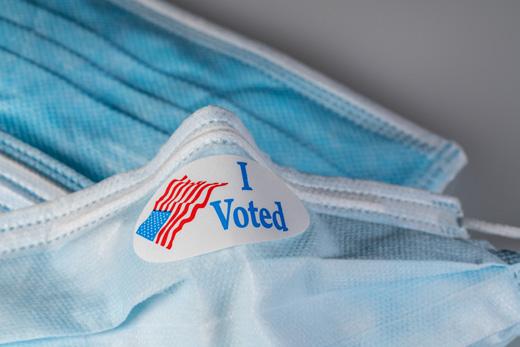
2 minute read
Elections During Times of Crisis

The fact the United States has never cancelled or postponed a presidential election serves as proof of the enduring nature of its electoral system. The 1864 election during the Civil War marked the second war time election following the election of 1812.
With the Civil War raging, the Union forces in the spring of 1864 did not possess an advantage and many observers doubted that President Lincoln would win a second term. His eight immediate predecessors had served a maximum of one term each. Though an incumbent rarely did not gain a second term in wartime, this pattern had not yet developed at the time of Lincoln’s reelection bid.
Several of his advisors suggested Lincoln postpone the election given his chances to win the election. However as Civil War historian Eric Foner explains, Lincoln found this idea contradictory to our democratic form of government. “Lincoln always felt that the Civil War was, number one, about democracy. [Lincoln thought] if you suspend democracy in the middle of the war, you are basically undercutting the whole purpose of the war. So even when he thought he was going to lose, he never really contemplated suspending the presidential election.”
The Democratic Party nominated General George McClellan who agreed with the Republican Party that the Confederacy must rejoin the Union for the war to end. However, under Lincoln, the Republican Party made ending slavery another condition for the Confederacy. The Democrats did not have the same emphasis. Lincoln’s campaign slogan “Don’t Change Horses in the Middle of a Stream” proved popular with voters, especially those serving in the War.
To allow soldiers to vote, many Northern states passed laws allowing for absentee voting in military camps. Some Democratic-controlled states prohibited this practice, so the War Department approved voting furloughs to allow troops to return home to cast their ballot. In that presidential election, Kansas participated for the first time since becoming a state three years earlier.
During World War II, the federal government issued Federal War ballots for service members who had not received ballots from their home states. Congress passed additional legislation to ensure those in the military could vote during the conflicts in Korea, Vietnam and subsequent military actions.
Perhaps the most relevant election to the upcoming 2020 presidential election was the 1918 midterm election. Not only did the United States and the world find itself in the midst of a global pandemic, but the United States had also committed forces to World War I. Candidates prohibited from holding rallies or speaking engagements turned to media coverage in newspapers or mailed out campaign literature. New policies required both voters and poll workers to wear masks. On the East Coast, politicians and public health officials had lifted most restrictions on churches, schools and theaters by early November. Historians assert the election might have been postponed had the United States not taken part in World War I. However, with soldiers fighting across the ocean, many Americans felt it a patriotic duty to vote. Whether Americans will emulate their predecessors remains to be seen, but many state and municipal officials are doing their best to ensure fair and safe voting in November.








